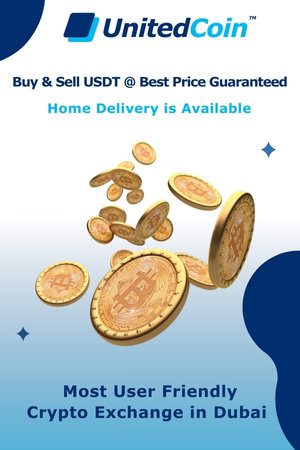The crypto currency market in Dubai has been experiencing significant growth in recent years, fuelled by increasing adoption and the city’s position as a global financial hub. As one of the leading crypto currencies, USDT (Tether) holds a prominent place in this market. Understanding the dynamics of selling USDT in Dubai requires insight into local regulations, market trends, and the available avenues for transactions.
Popular Avenues for Selling USDT in Dubai
In Dubai, several avenues facilitate the selling of USDT. These include:
Cryptocurrency Exchanges
Cryptocurrency exchanges serve as primary platforms for buying and selling digital assets, including USDT. In Dubai, both local and international exchanges operate, providing users with a range of options for trading.
Over-the-Counter (OTC) Trading
For larger transactions or personalized service, over-the-counter trading desks provide a viable option. OTC trading enables direct transactions between buyers and sellers, often at negotiated prices. In Dubai, OTC desks cater to institutional investors, high-net-worth individuals, and traders seeking privacy and efficiency in their transactions.
Peer-to-Peer (P2P) Platforms
Peer-to-peer platforms connect buyers and sellers directly, facilitating USDT transactions without the involvement of intermediaries. Popular platforms such as Local Bitcoins and Paxful enable users to post advertisements or browse listings to find suitable counterparts for trading. P2P trading offers flexibility and diverse payment options, accommodating a wide range of users.
Key Considerations for Sellers
When selling USDT in Dubai, sellers should consider several factors to optimize their transactions:
Market Analysis
Before initiating a sale, conduct thorough market analysis to assess current prices, trading volumes, and demand trends. Understanding market dynamics enables sellers to make informed decisions and capitalize on favourable conditions.
Compliance and Security
Compliance with regulatory requirements is paramount to ensure the legality and legitimacy of USDT transactions. Verify the compliance status of exchanges or trading platforms, adhere to know-your-customer (KYC) and anti-money laundering (AML) procedures, and prioritize security measures to safeguard assets.
Transaction Fees and Costs
Evaluate transaction fees charged by exchanges, OTC desks, or P2P platforms to optimize the cost-effectiveness of selling USDT. Consider factors such as deposit and withdrawal fees, trading commissions, and currency conversion costs to maximize returns.
Potential Challenges
Despite the opportunities presented by the cryptocurrency market in Dubai, sellers may encounter various challenges:
Regulatory Uncertainty
The evolving regulatory landscape surrounding cryptocurrencies may pose challenges for sellers, leading to uncertainty and compliance risks. Stay updated on regulatory developments and seek legal advice to navigate potential changes effectively.
Market Volatility
Cryptocurrency markets are inherently volatile, characterized by price fluctuations and market sentiment. Sellers should be prepared to manage price risks and adapt their strategies accordingly to mitigate potential losses.
Security Risks
Security breaches and cyber attacks remain prevalent risks in the cryptocurrency space. Implement robust security measures, such as multi-factor authentication, cold storage solutions, and regular audits, to protect USDT assets from unauthorized access or theft.
Conclusion
Selling USDT in Dubai offers lucrative opportunities for investors and traders seeking exposure to the cryptocurrency market. By understanding the regulatory landscape, leveraging popular avenues for transactions, and adopting prudent strategies, sellers can navigate the process effectively and capitalize on the growing demand for digital assets in the region.




